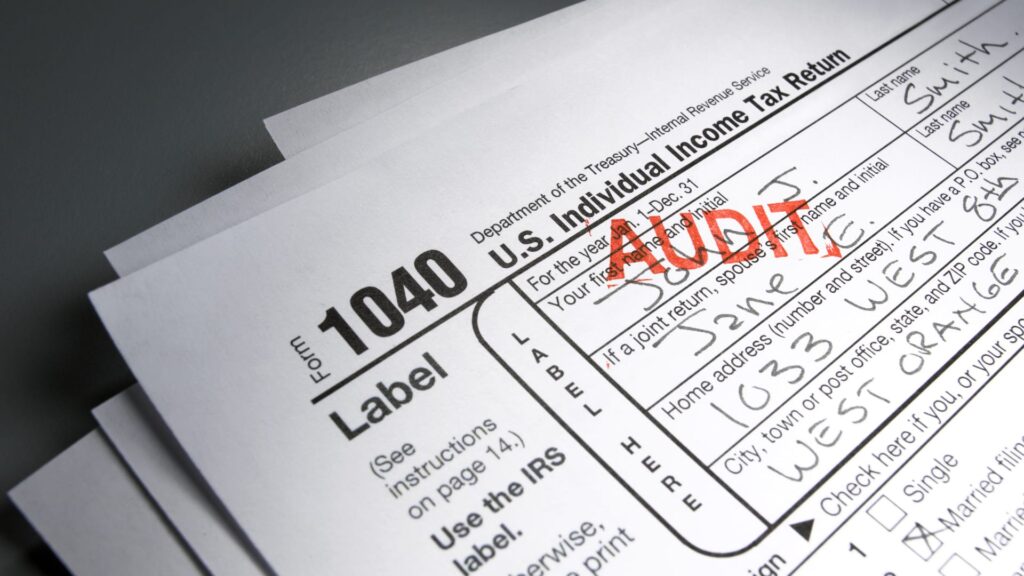
Being audited by the Internal Revenue Service (IRS) can be a stressful and overwhelming experience. It can also be a time-consuming process, requiring a lot of paperwork and communication with the IRS. If you receive a notice from the IRS stating that you are being audited, it’s essential to act quickly and take the necessary steps to protect yourself and your finances. In this article, we will discuss what to do if you’re audited by the IRS.
What is an IRS Audit?
An IRS audit is an examination of a taxpayer’s financial records and tax return to determine whether they accurately reported their income, deductions, and credits. The IRS conducts audits to ensure compliance with the tax code and to collect any owed taxes, penalties, or interest. Audits can be conducted through mail, in-person, or by phone, and they can cover a range of issues, from simple errors to fraud.
Types of Audits
There are several types of IRS audits, each with different levels of complexity and scrutiny. These include:
Correspondence Audit: This type of audit is the most common and least invasive. It involves the IRS sending you a letter requesting more information about a particular item on your tax return. You will need to respond to the letter by providing the requested information and documentation.
Office Audit: This audit requires you to visit an IRS office to provide additional documentation and answer questions about your tax return. It is usually conducted when the IRS has questions about specific items on your return.
Field Audit: This audit is the most comprehensive and invasive. It involves an IRS agent visiting your home or business to review your financial records and verify your income, expenses, and deductions.
What Triggers an Audit?
Several factors can trigger an IRS audit, including:
- High Income: The higher your income, the more likely you are to be audited.
- Large Deductions: Claiming large deductions or credits relative to your income can raise red flags with the IRS.
- Discrepancies: Discrepancies between your tax return and third-party information, such as W-2s or 1099s, can trigger an audit.
- Random Selection: In some cases, the IRS selects returns for audit randomly.
What to Do if You Receive an Audit Notice
If you receive a notice from the IRS stating that you are being audited, it’s essential to take the following steps:
Read the Notice Carefully: The first step is to read the notice carefully and understand the reason for the audit. The notice will tell you what information the IRS is requesting and how to respond.
Gather Your Records: Gather all of the relevant financial records, including receipts, bank statements, and tax returns. Make copies of all documents and organize them in a clear and concise manner.
Respond on Time: Respond to the notice by the deadline specified in the letter. Failing to respond on time can result in penalties and interest.
Seek Professional Help: Consider seeking the advice of a tax professional, such as a CPA or an IRS lawyer. They can help you understand the audit process and provide guidance on how to respond to the IRS.
Be Honest and Cooperative: Be honest and cooperative with the IRS during the audit process. Lying or withholding information can result in more severe penalties.
Keep Records of Communication: Keep a record of all communication with the IRS, including phone calls, letters, and in-person meetings. This will help you keep track of the audit process and ensure that you have a record of all communication.
How to Prepare for an Audit
If you want to prepare for an IRS audit or are concerned about being audited, there are several steps you can take to ensure that you are ready:
Keep Accurate Records: One of the most important steps in preparing for an audit is to keep accurate and detailed records of all financial transactions. This includes receipts, invoices, bank statements, and tax returns. Make sure that all of your records are organized and easy to access.
Understand the Tax Code: Familiarize yourself with the tax code and ensure that you understand all of the deductions and credits that you are claiming on your tax return. This will help you avoid mistakes and reduce the risk of triggering an audit.
Double-Check Your Return: Before filing your tax return, double-check all of your information to ensure that it is accurate and complete. This includes verifying all of your income and deductions, as well as checking for any math errors.
Consider Hiring a Professional: If you are unsure about how to prepare for an audit or want to ensure that your tax return is accurate, consider hiring a tax professional. They can review your return, provide advice on how to reduce your audit risk, and represent you in the audit process.
Respond to IRS Inquiries: If the IRS contacts you with a question or request for information, respond promptly and provide all of the requested documentation. Failure to respond to IRS inquiries can result in penalties and interest.
Understand Your Rights: As a taxpayer, you have certain rights during an audit, including the right to appeal the IRS’s findings. Familiarize yourself with these rights to ensure that you are treated fairly during the audit process.
Conclusion
Being audited by the IRS can be a stressful and time-consuming experience, but it doesn’t have to be. By understanding the audit process, keeping accurate records, and responding promptly to IRS inquiries, you can reduce your risk of being audited and ensure that you are prepared if an audit does occur. If you have any questions or concerns about an audit, consider seeking the advice of a tax professional who can provide guidance and support throughout the process.
